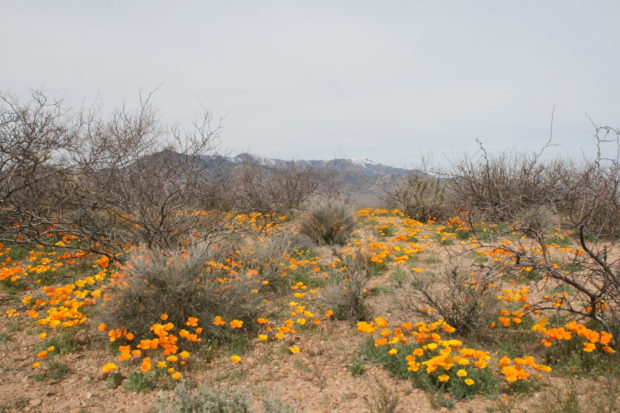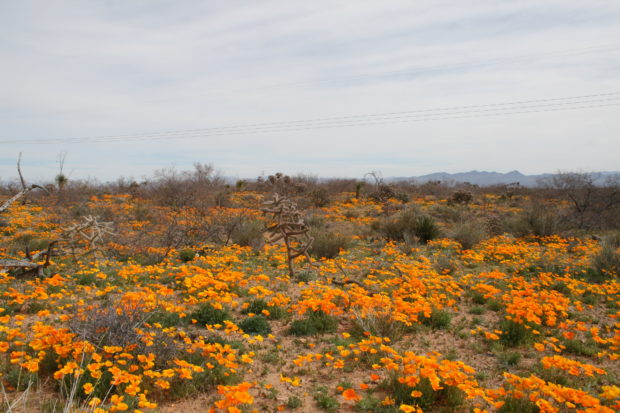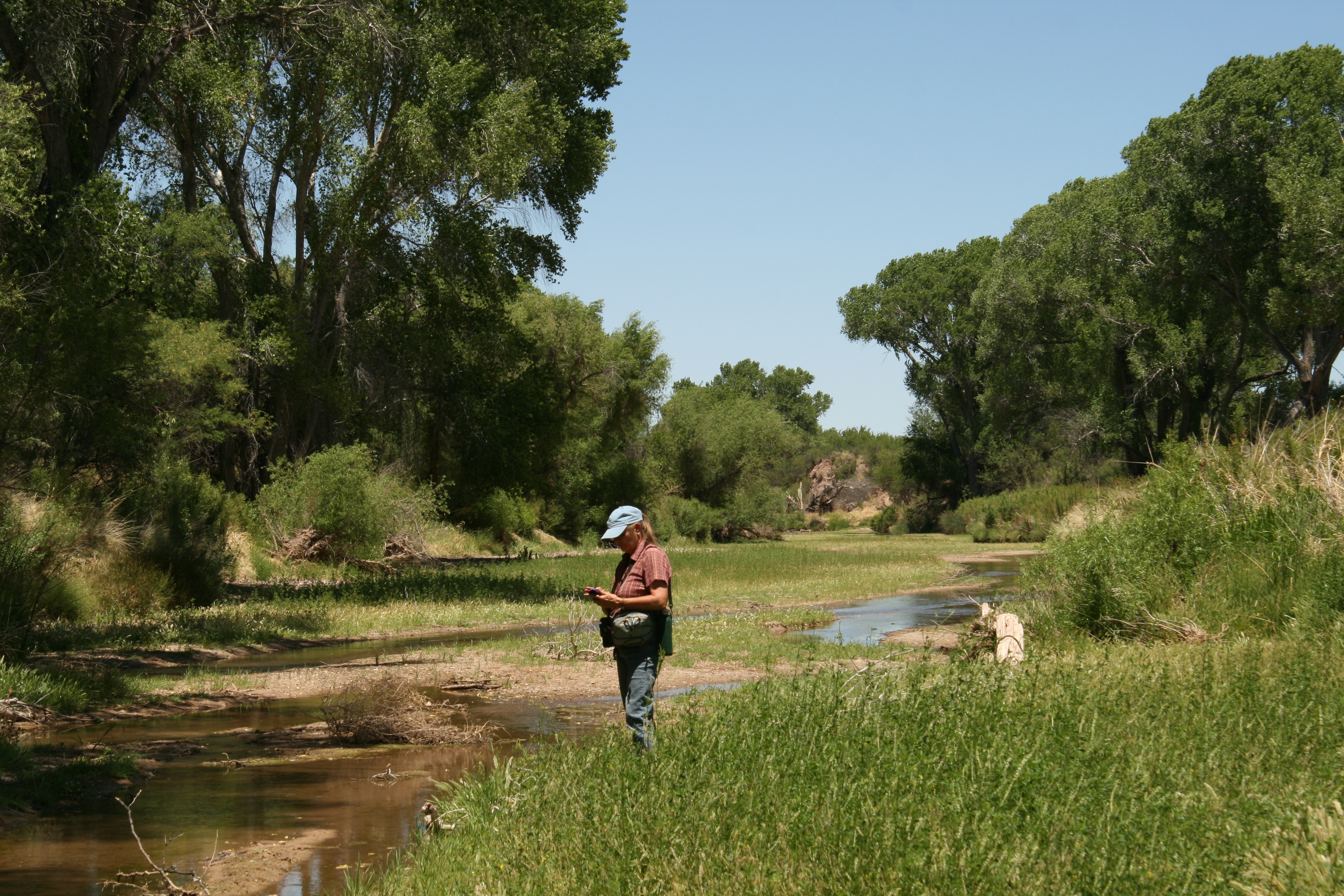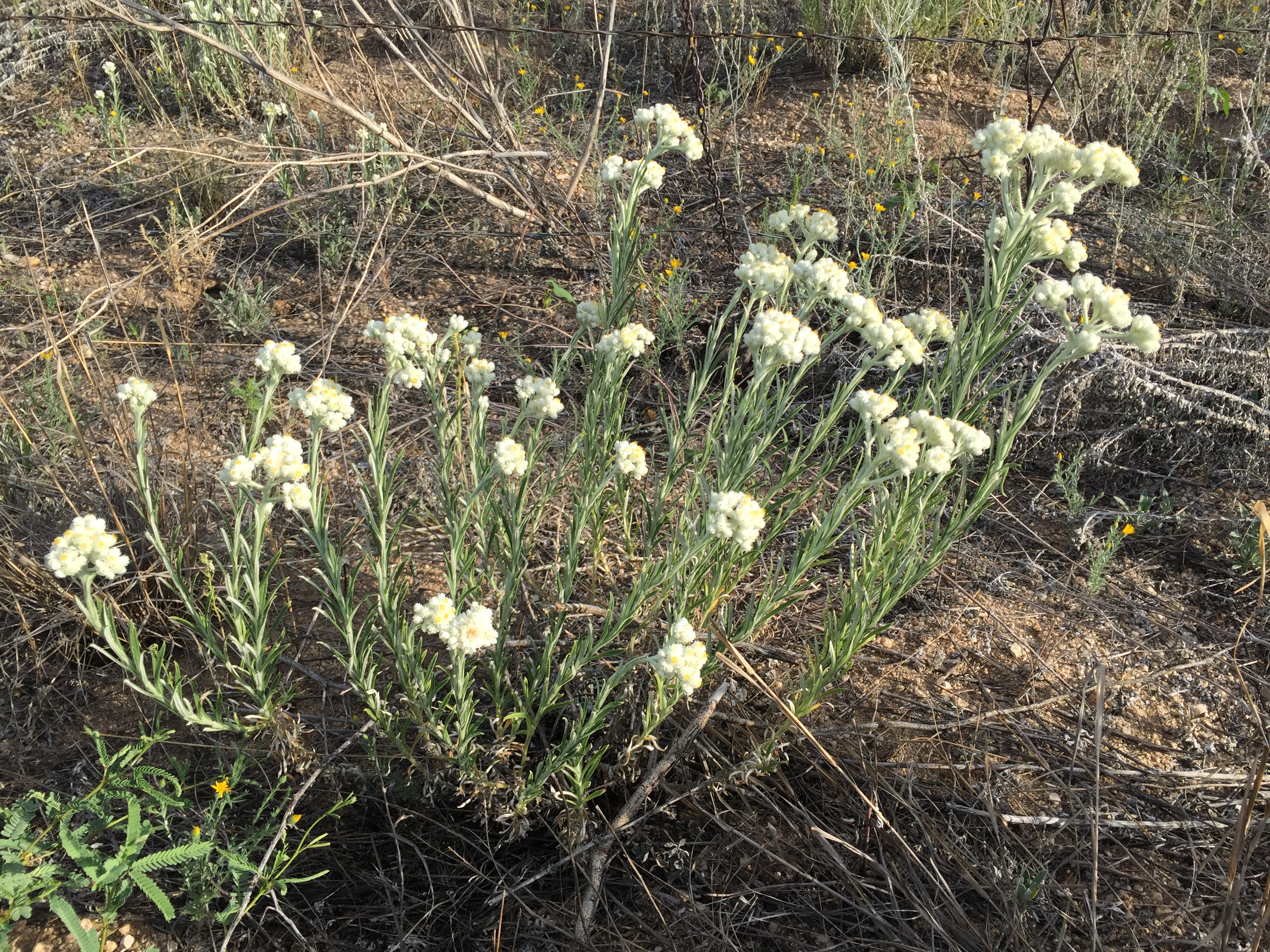Lesquerella is named in honor of Leo Lesquereaux and Wikipedia reminds me that he was a “Swiss bryologist and a pioneer of American paleobotany.” So, Swiss not French, Mister Mesquitey.
Eschscholzia is in honor of Dr. Johann Friedrich Eschscholtz. Arizona Flora lists the genus as Eschscholtzia with the t. That’s the only place I’ve seen that t. I’m sure there is a story behind this, though probably not interesting except to a plant taxonomy geek.
Anyway, our Mexican poppy is Eschscholzia californica subsp mexicana. And the mustard bladderpod is Physaria gordonii. The sweet fragrance from the vast stands of bladderpod is intoxicating and make it well worth spending some time near a flower covered field and taking it in. And if you look around in a stand of Mexican poppies you may find plants with white, pink, or rose colored flowers mixed in with the bright oranges and yellows.

The photos of the poppies are from our trip toward Safford on Hwy 191. In one photo you can see the snow capped Pinaleno Mtns. in the background. When we got back from New Mexico a week later, the wild flower show in Cochise County really took off and as I write this, fields, hills and mesas are glowing gold and yellow.


I guess I don’t have a whole lot more to add about this show. Well, I have been known to sing a little better...

The photos are mine and of the plant Pseudognaphalium leucocephalum. It sure is nice to have some white flowers mixed in with the oceans...

This episode is a very short list of near life experiences…I spared you, but suspect you have a pretty good…